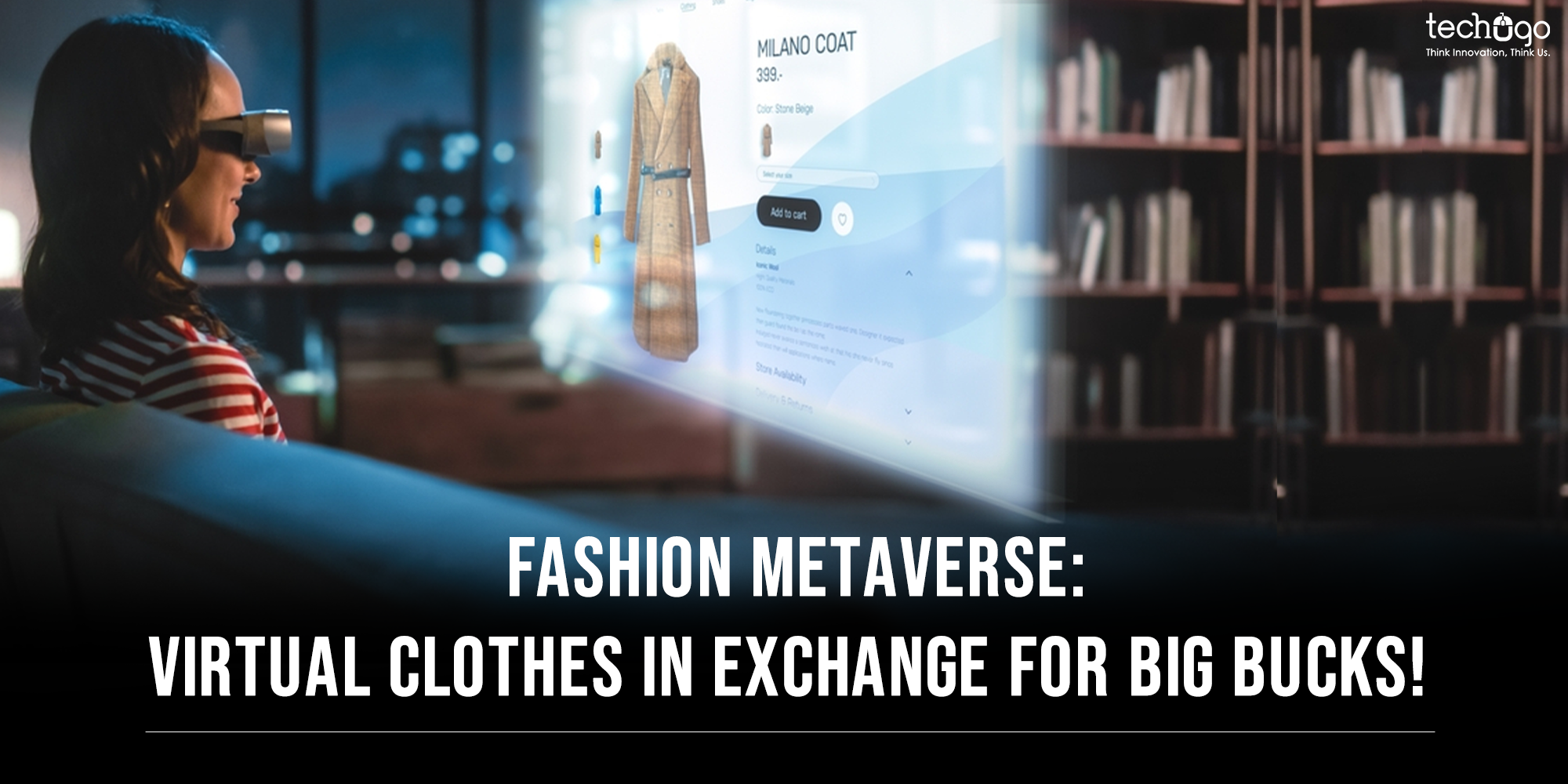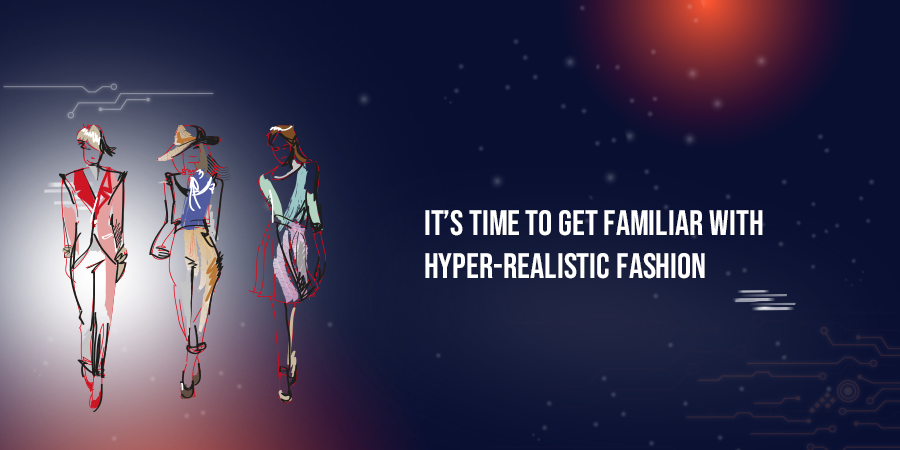Write Us
We are just a call away
[ LET’S TALK AI ]
X
Discover AI-
Powered Solutions
Get ready to explore cutting-edge AI technologies that can transform your workflow!


Who thought that a pandemic could turn our world upside down! Undoubtedly, COVID-19 has significantly impacted everyone’s lives, including the shutdown of brick-and-mortar stores overnight. Thus, began the DIGITAL journey of the businesses as they made their presence online.
Since we were locked in our homes for over a year, we are the biggest witness to the changing world, from shopping to entertainment. The digital age also pushed the designers to experiment and bring together a vision of reality and fantasy.
Did you not understand?
In short, THE FUTURE IS HERE, and you’ll live the perception as you read along with this article!
We all are familiar with the fact that the fashion industry is popularly known for its creative risk-taking. Big labels or brands and fashion startups have now set their goals on ‘Metaverse’ and are all set to enter the digital universe.

In simple words, the Metaverse is the blurred boundary between virtual and non-virtual worlds. It is an experience where the audience can immerse themselves in the digital world for entertainment, building communities, and earning money.
One of the massive examples is of a digital concert hosted by Fortnite in collaboration with Travis Scott. The event was a huge success and attracted more than 45 million viewers.
Unquestionably, the audience is now willing to spend money on virtual goods and services. Therefore, talking about the fashion industry, prominent designers have started invading the metaverse after recognition of the potential digital goods hold.
Another tremendous example is a Gucci handbag digital edition that got sold for about $4,115 on Roblox as an in-game accessory.
Isn’t it jaw-dropping?

Have you heard about the term ‘hyper-realistic’ fashion?
It is a visual portrayal of clothing brought to life by the utilization of 3D software and technology. Notably, fashion houses are now intriguing Gen Z with their new approach as they call it ‘buy-wear-post-dispose.’
Need a testament?
The recently launched virtual sneakers of Gucci are the trending example!
What’s more? The fashion metaverse acts like the missing piece of the sustainability puzzle, eliminating any physical waste.
The whole mechanism isn’t as simple as it sounds, though. Despite the introduction of exceptional functionality and truckloads of benefits, there are a few concerns that need to be addressed.
So, what’s the stumbling block? Keep reading to know!

Now that you’re well familiar with the term Metaverse and the fine thin line between virtual and non-virtual clothing, it’s time to pay attention to the pitfalls.
There are likely to be two scenarios- First, a brand comes up with digital clothing without a real counterpart. Second, the existing physical clothing of a brand is transformed into the digital one.
Talking about the first scenario, there remains a doubt about the original creator of the digital product. Furthermore, since the clothing pieces purchased from a store have their authenticity label, there’s no proof or label attached to the hyper-real fashion.
Moreover, the design can be replicated, which can become a huge threat to the designers or brands.
Brands can utilize Non-Fungible Tokens (NFTs) that are a blockchain-based mechanism. The NFTs cannot be traded for any equal value replacement. Additionally, they hold a unique identification code that cannot be imitated and acts like an authenticity label, just like the garments purchased from a physical store.
Additionally, suppose a designer wishes to maintain the exclusivity of the garment. In that case, they can sell the NFT-certified piece, enabling the customer to enjoy the benefits of the limited-edition product.
Isn’t it intriguing?
Another concern is the digitization of an existing piece of clothing. Sure, the brand holds the ownership of the existing physical clothing; however, once it is digitized, the brand no more holds the ownership of the new version.
So, how would a brand retain the ownership of digitized products?
Evidently, the brand will pass their physical products to the 3D designer for digitization; therefore, the designers will become the owner.
If the brand wants to retain the ownership, the two parties will have to sign a contract that enables ownership of the digital design to lie with the brand after the process.
In case the brand is working with multiple agencies for digitization, a license agreement will have to be signed by them all, defining their relationship with the brand.
The whole mechanism holds a few privacy concerns related to user data. Therefore, fashion houses must not collect data that is not required and have limitations.
It is a vital step for the brands to understand the mechanism of the technology before integrating the same with their mechanisms. Moreover, a detailed agreement must be signed between the parties.
Undoubtedly, technology is growing rapidly, and the fashion industry boom motivates the designers to adopt creative risks and experiment. Though it is a great initiative, legal concerns must not be forgotten.
So, what is your take on the industries adopting new methods and technologies for enhancement of their traditional methods?
Are you planning to incorporate new technologies into your business to build a solid consumer base?
DON’T STOP YOURSELF! Instead, connect with the professionals and present your awesome idea for more insights.
Take your step towards technological transformation today!
Write Us
sales@techugo.comOr fill this form